ARTICLE AD BOX

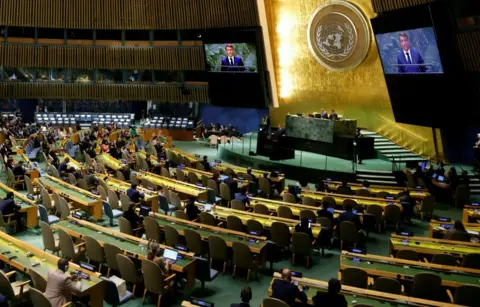 Getty Images
Getty Images
The annual United Nations General Assembly week is always frenetic.
It may be called the Super Bowl of diplomacy, but this year perhaps a more appropriate analogy is a marathon.
Not since World War Two have there been so many global conflicts piling up, with Lebanon on the brink just as leaders arrived in New York City.
Given the current state of uncertainty, the forthcoming US election was in the back of everyone’s minds here.
One senior Western diplomat told me no-one expects things to move on the Israel-Gaza war until after a winner is declared in the White House race.
“We understand that the current administration is under pressure not to take any decisions that might affect the election,” he said.
“But we hope that after the election the current administration will use the interim period to maybe make some decisions that will lead to improving the situation in Gaza.”
But in conversations with a dozen officials from different continents at the UN's headquarters in Manhattan, a picture emerged of a global community fatigued by crisis and resigned to working with whoever is the next occupant of the White House.
All were granted anonymity to share their candid views.
"I don’t see any difference between the two candidates, just look around the whole world from one end to the other, we are in total chaos," an ambassador from a South Asian nation told me.

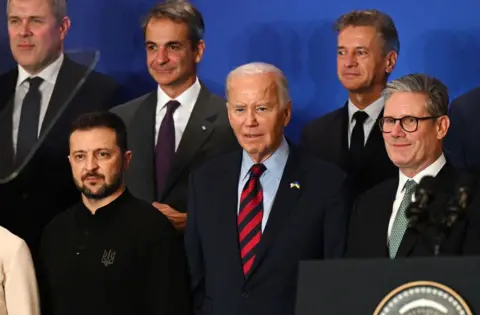 Getty Images
Getty Images
World leaders on the sidelines of the UN General Assembly this week
It's a sentiment that reflects perhaps disillusionment with US leadership, but also the view by many in the global south that while the rhetoric changes, America’s broad foreign policies really don’t swing that drastically from one administration to the next.
“It’s very easy to bash and make alarms about what could happen,” one senior Arab representative told me.
He said while he thinks former President Donald Trump is unpredictable compared to Vice-President Kamala Harris, the idea that he would rip up multilateralism is exaggerated because it didn’t happen before.
"What is really undermining multilateralism are actions and conflicts that are happening in many parts of the world, and you can’t put that on one country or on one administration," he said.
Here at the UN complex, one longtime official of the organisation tells me there isn’t panic about the US election.
"We have enough anxiety spread around what's going on today to worry about what's going on in November,” the official said.
This source added that the UN survived the Trump administration in a way few would have predicted.
"The volume may have been very loud, but they weren’t all that different from previous Republicans," the official said.
If there is a second term, the official told me their sense is that Trump will be so focused on domestic issues and "settling scores internally" that foreign policy might not be the focus in the beginning.
Speaking to the BBC, Kenyan President William Ruto sounded unfazed.
"I am very confident that the bones of friendship between Kenya and the US transcend individuals in office," he said. "It will transcend me as president or whoever is elected in the US."
William Ruto: Kenyan president on post-election relations with US
For many Europeans, however, there is anxiety about a second Trump administration and what some see as his transactional approach to foreign relations.
A European diplomat told me that with the Security Council incapable of managing conflicts, there is a fear that an emboldened and potentially more radical Trump administration would add to the dysfunction and encourage more movement in Europe toward the ultra-right.
“I think it would be a relief for at least the majority of Europeans if Harris comes into office,” he said.
Nevertheless, another senior European diplomat said that while Harris winning would give them a sense of continuity, they also now have a relationship from working with Trump for four years and feel more prepared than in 2016.
Coinciding with the UN high level debate was Climate Week in New York City. Caribbean leaders spoke not only from the green and gold General Assembly Hall, but also to rooms full of businessmen and politicians at side events to warn that the world is dangerously behind on its climate commitments, putting their islands at risk.
One minister from the region told me that climate was the main area where the US candidates’ differences worried them. “In terms of having real commitment from the US government and for the US government to provide leadership,” the minister said it’s "definitely Democrats".
Many still remember Trump pulling out of the Paris Climate Accord, while Joe Biden later rejoined.
The Prime Minister of the Bahamas, Philip Davis, said political change has been a challenge to progress over the last 26 years. He said he’s been calling for some kind of mechanism that protects a change in political leadership from impeding or reversing progress.
Election day on 5 November may feel faraway to diplomats who have been confronted with more challenges than solutions here this past week.
But the time is fast approaching when votes will be counted in the US, and with it a new face in the White House.
Another European minister, running to an event, simply had this to say to me: "My hope is that it doesn’t get too weird."
Additional reporting by Cai Pigliucci.

 3 months ago
17
3 months ago
17
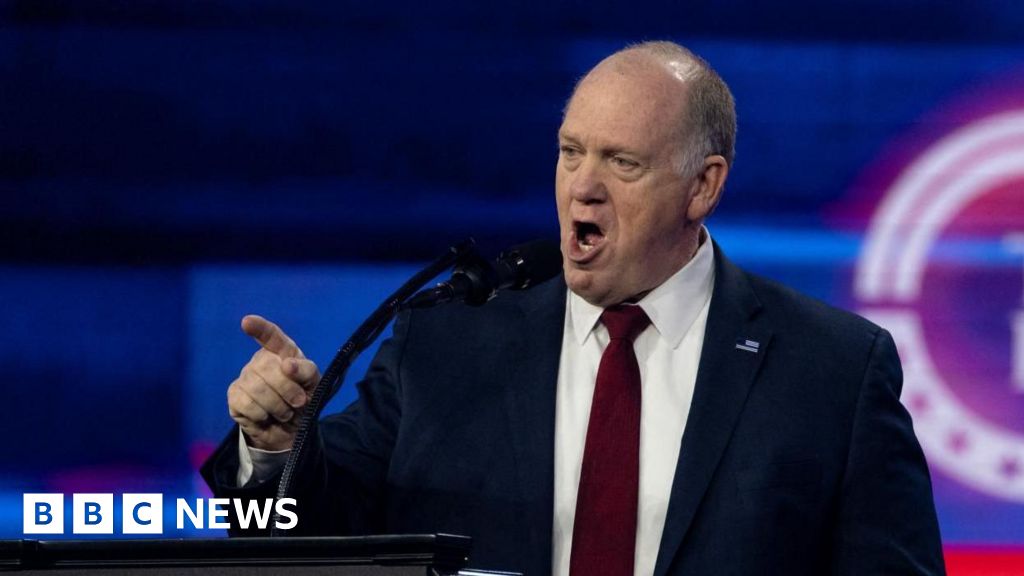
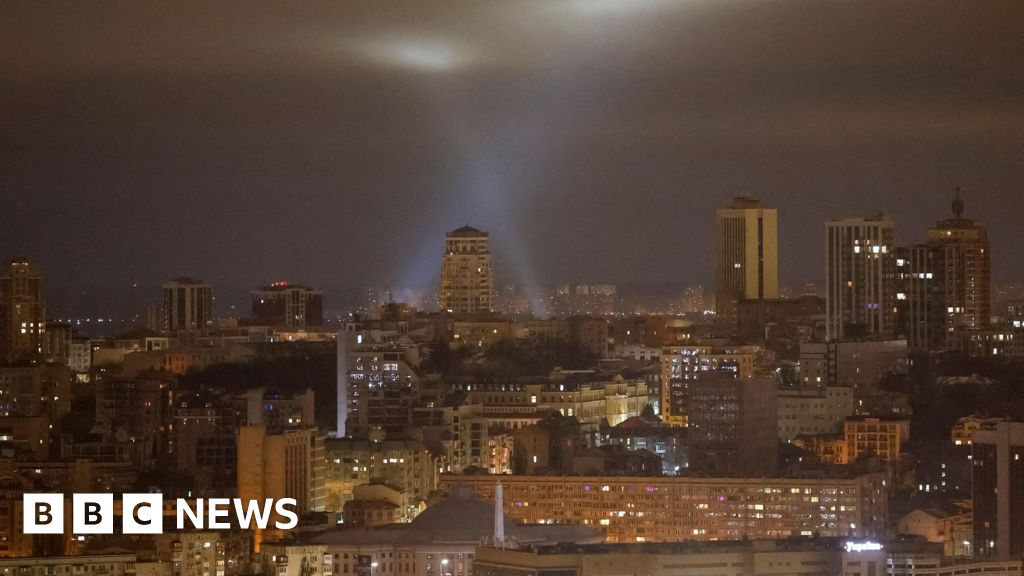
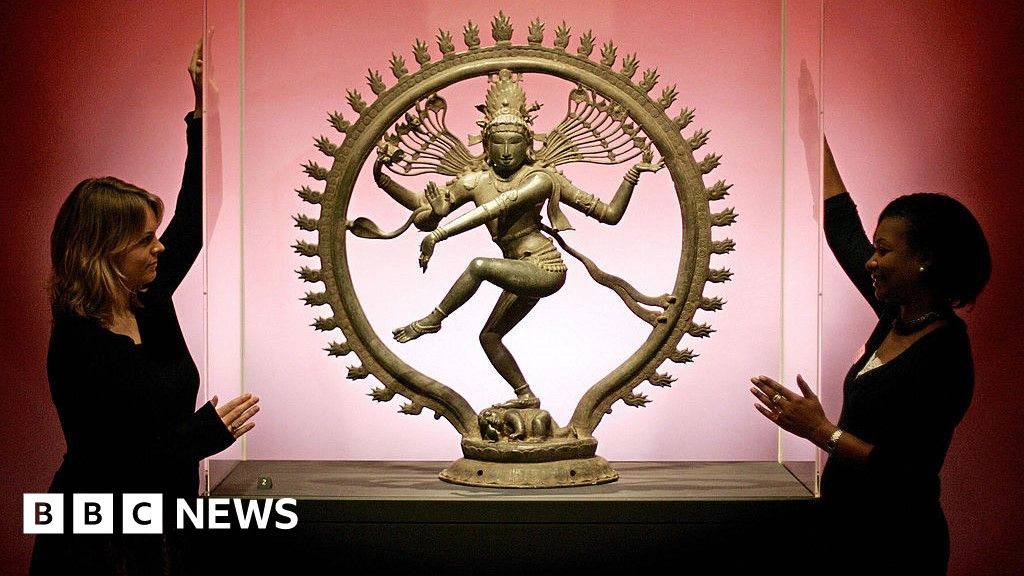





 English (US) ·
English (US) ·